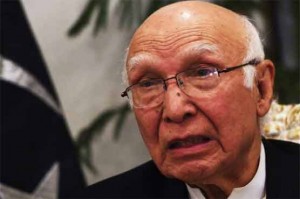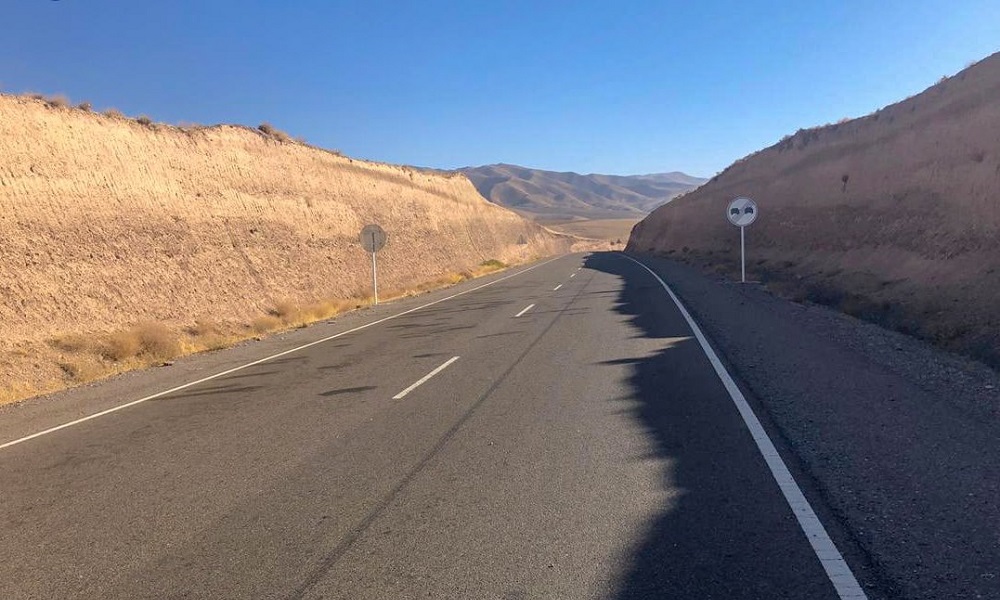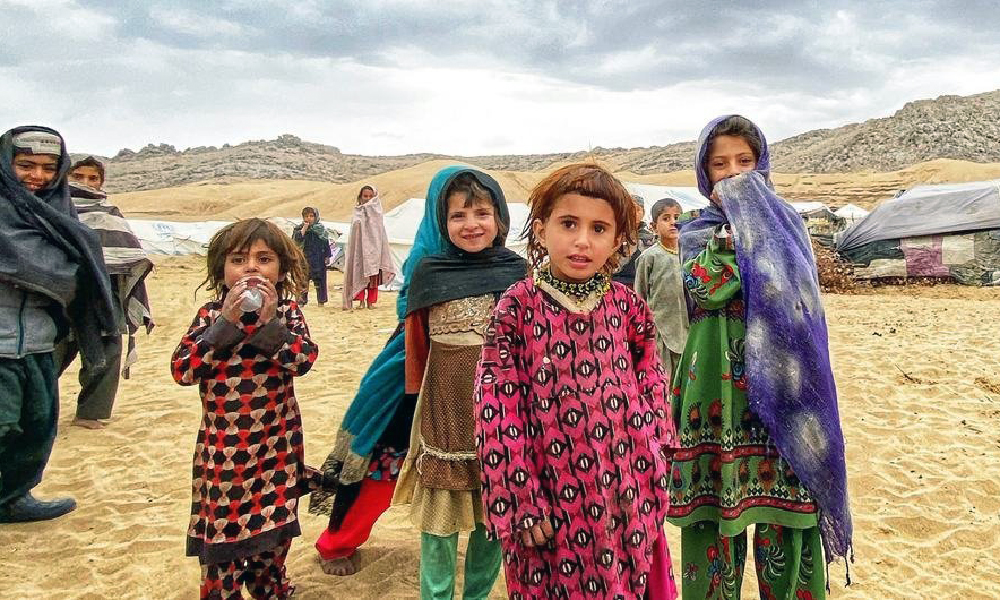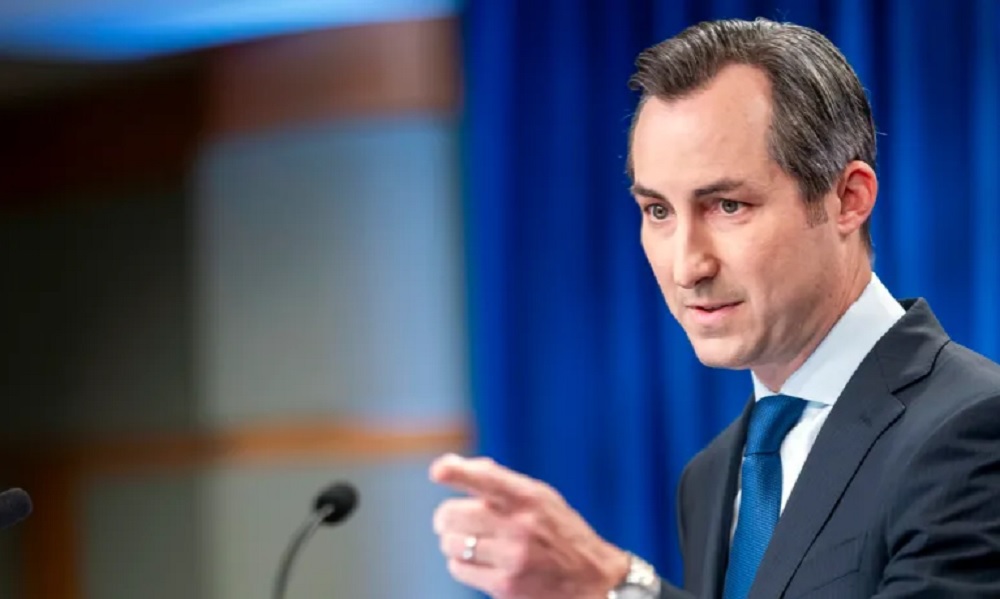Latest News
Pakistan Urges Afghan Leaders to Review Approach to Taliban Peace Talks

 Pakistan has called on Afghan leaders to review their “fragmented” approach to peace talks with the Taliban on containing and ending the resilient insurgency, instead of blaming Islamabad for the deteriorating security situation in Afghanistan.
Pakistan has called on Afghan leaders to review their “fragmented” approach to peace talks with the Taliban on containing and ending the resilient insurgency, instead of blaming Islamabad for the deteriorating security situation in Afghanistan.
Sartaj Aziz, chief foreign policy advisor to the Pakistani prime minister, in an exclusive interview with VOA, says that a lack of political consensus and prevailing ambiguity in Afghanistan about whether to treat Taliban insurgents as terrorists or stakeholders in national politics has blocked internationally-backed efforts to start peace talks between warring Afghan sides.
“Their approach to talks with the Taliban is very, very fragmented. We want the (Afghan) government of national unity to succeed, to establish its writ, we want them to send a clear signal to the Taliban and other groups that the whole world wants them (insurgents) to talk (to Kabul) and solve the problem because nobody wants fighting in Afghanistan to continue. ,” Aziz told VOA.
The clarity in the Afghan approach coupled with Pakistan’s resolve to prevent the use of its soil against Afghanistan and international pressure may send “right signals” to the Taliban and they may come to the table for peace talks.
“I think they will come under greater pressure and so, if serious negotiations begin in 2017 that will be our best hope for peace in Afghanistan,” Aziz said.
He said that years of reliance on the use of military power to resolve the Afghan conflict has so far not yielded results and instead strengthened the Taliban.
“The Taliban may not be able to capture (the) bulk of Afghanistan or the capital or any other (major urban) place but they can carry on insurgency for a very long time and the people of Afghanistan do need peace as early as possible… In the meanwhile, of course, ISAF (international) forces are trying to help Afghanistan to make sure that they (the Taliban) don’t gain much territory because if they start gaining (more territory) then obviously they will be reluctant to negotiate,” cautioned Aziz.
However, Afghanistan High Peace Council (HPC) says Pakistan’s words and actions are mutually antagonistic.
“Because of creating a trust between Afghanistan and Pakistan, the Pakistani government should announce any suicide attacks “HARAM”, (unlawful) and destroy the safe havens,” said Muhammad Ismail Qasem Yar, HPC advisor on international relations.
This comes as Afghan officials have always accused Pakistan of organizing terrorist attacks for Afghanistan.

Latest News
Traffic accident leaves one dead, four injured in Herat

Local officials in Herat say one person was killed and four others injured due to a traffic accident in Karukh district of the province.
The accident took place on Thursday night at 8:pm.
The injured individuals have been taken to Herat’s regional hospital by the personnel of Karukh district police headquarters, local officials said.
Latest News
250,000 Afghan children need homes, food, education after returning from Pakistan

In the wake of an announcement by Pakistan that it intends to start Phase Two of deportations of Afghans, Save the Children said Thursday that almost a quarter of a million Afghan children need proper homes, food, and access to education after returning from Pakistan in the past seven months.
In a statement issued by the organization, Save the Children said more than 520,000 Afghans have returned from Pakistan since September last year, after Pakistan said all undocumented foreigners must leave the country voluntarily or face deportation.
Nearly half of all the returnees are children.
A survey by Save the Children of families who have returned to Afghanistan – and the communities who are hosting them – found that nearly all (99%) do not have enough food for the next one to two months.
About three-quarters of returnees and families in host communities reduced portion sizes or restricted the food consumption of adults so small children could eat.
About 40% of returnees and host families surveyed had to borrow food or rely on friends and relatives for at least three days a week – with 13% of returnees and 9% of host families saying they had to get food from others every day.
Almost 8 million children in Afghanistan – or one in three – are facing crisis levels of hunger.
Nearly one in six families live in tents, according to the survey, with most returnees having little or no means to support themselves.
Only a third had managed to bring assets back with them from Pakistan.
Nearly half (47%) said there were no jobs available in Afghanistan, with 81% saying that they do not have any skills that could lead to employment.
Almost two thirds (65%) of children who have returned to Afghanistan have not been enrolled in school. The majority (85%) told Save the Children that they don’t have the necessary documents to register and enroll in school.
In Pakistan, more than two thirds of these children had been attending school.
Arshad Malik, Country Director for Save the Children in Afghanistan, said: “Families are returning to Afghanistan with virtually nothing. Most are relying on relatives or friends to support them – and these communities already have little to support themselves.
“The return of so many people is creating an additional strain on already overstretched resources. Children need support and stability. Many undocumented Afghan children were born in Pakistan – Afghanistan is not the place they call home,” he said.
He added that in addition to the returns from Pakistan, 600,000 Afghans arrived from Iran last year. Also, “families have been forced from their homes by multiple disasters, including the series of earthquakes in Herat and the ongoing drought. Afghanistan is also now home to the second largest number of internally displaced people in the world – or roughly 1 in 7 people,” Malik said.
According to him, Afghanistan not only needs urgent funding from international donors and governments – but also needs long term, community-based solutions to help all displaced Afghans rebuild their lives.
Latest News
US asks IEA to ensure Afghan soil not used by terrorists

The US State Department on Thursday asked the Islamic Emirate of Afghanistan (IEA) to ensure that Afghanistan is not used to support terrorist groups, movement of terrorists or acts of terrorism.
A State Department spokesman told Geo News that Washington has “been very clear that we will judge the Taliban (IEA) by what they do, not what they say.”
“The Taliban (IEA) wants international legitimacy. This requires the Taliban (IEA) to meet their commitments to the international community,” the official said.
The spokesperson said the most enduring interest for the US in Afghanistan was to ensure that it never again became a safe haven for terrorists, especially for those who wished harm to the US or its partners or allies.
“We are in regular communication with Pakistani leaders as a part of our partnership on counterterrorism issues. We continue to discuss Afghanistan in detail, including through our annual counterterrorism dialogue and other bilateral consultations,” the official said.
Islamabad has time and again urged Kabul to take meaningful action against terrorists using Afghan soil to launch attacks inside Pakistan.
However, the IEA has repeatedly rejected claims of militant groups in the country and have said they will not allow any group to threaten a country from Afghanistan.
On Tuesday, the Pakistan Army’s top commanders were briefed on how terrorist groups operating from Afghanistan pose a threat to regional and global security, besides acting as proxies against Pakistan and its economic interests, especially the China-Pakistan Economic Corridor (CPEC).
A day ago, the Inter-Services Public Relations (ISPR) said security forces had killed seven terrorists trying to infiltrate the Pakistan-Afghanistan border in the North Waziristan district.
In a statement, the military’s media wing had said the security forces on April 16 had detected a movement of a group of seven terrorists near the border in the Spinkai area of Ghulam Khan in the tribal district, Pakistan’s The News reported.
-

 Sport4 days ago
Sport4 days agoACL fever grows as fixtures finalized
-

 World4 days ago
World4 days agoUS will not take part in any Israeli retaliatory action against Iran
-

 Latest News4 days ago
Latest News4 days agoOver 50 people dead in traffic accidents over Eid
-

 Latest News4 days ago
Latest News4 days agoUS identifies Kabul airport suicide bomber
-

 Business4 days ago
Business4 days agoAfghanistan-Kazakhstan chamber of commerce opens in Herat
-

 Latest News4 days ago
Latest News4 days agoGood rains enable DABS to increase power production in Kabul
-

 World3 days ago
World3 days agoIsraeli military vows response to Iran attack as calls for restraint mount
-

 Latest News3 days ago
Latest News3 days agoPakistani police give Afghans in Balochistan one day to leave
















